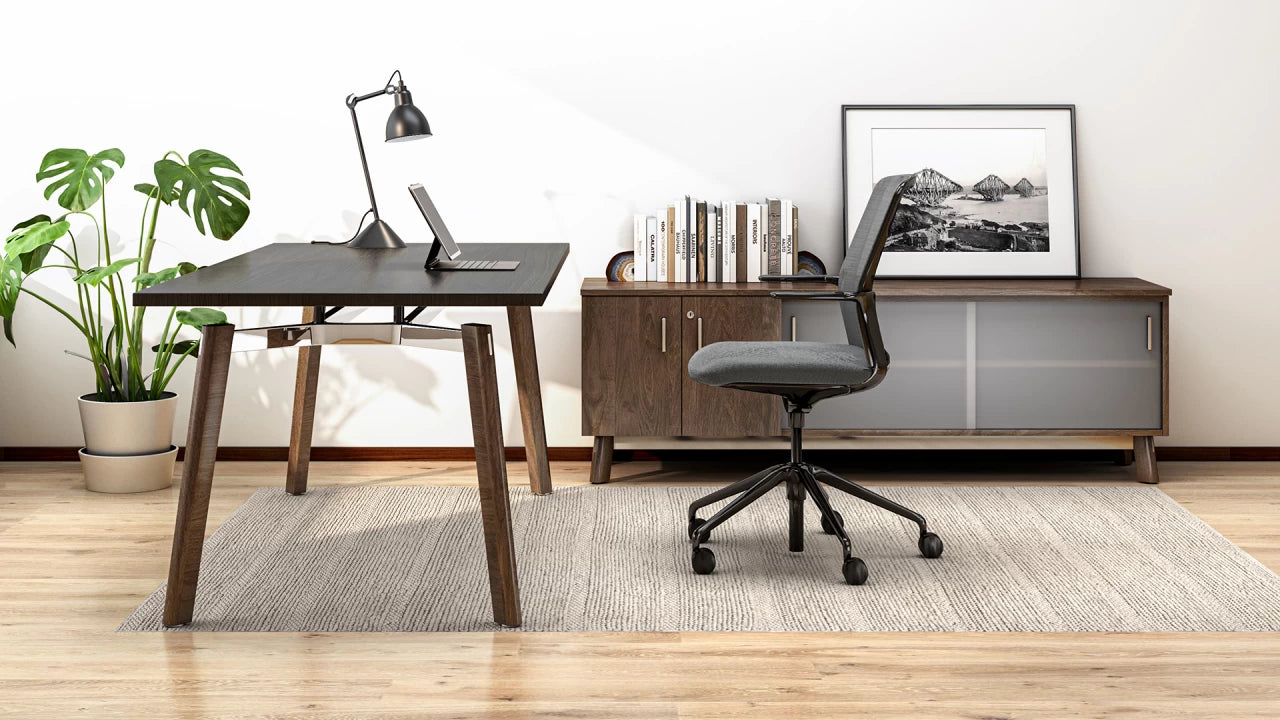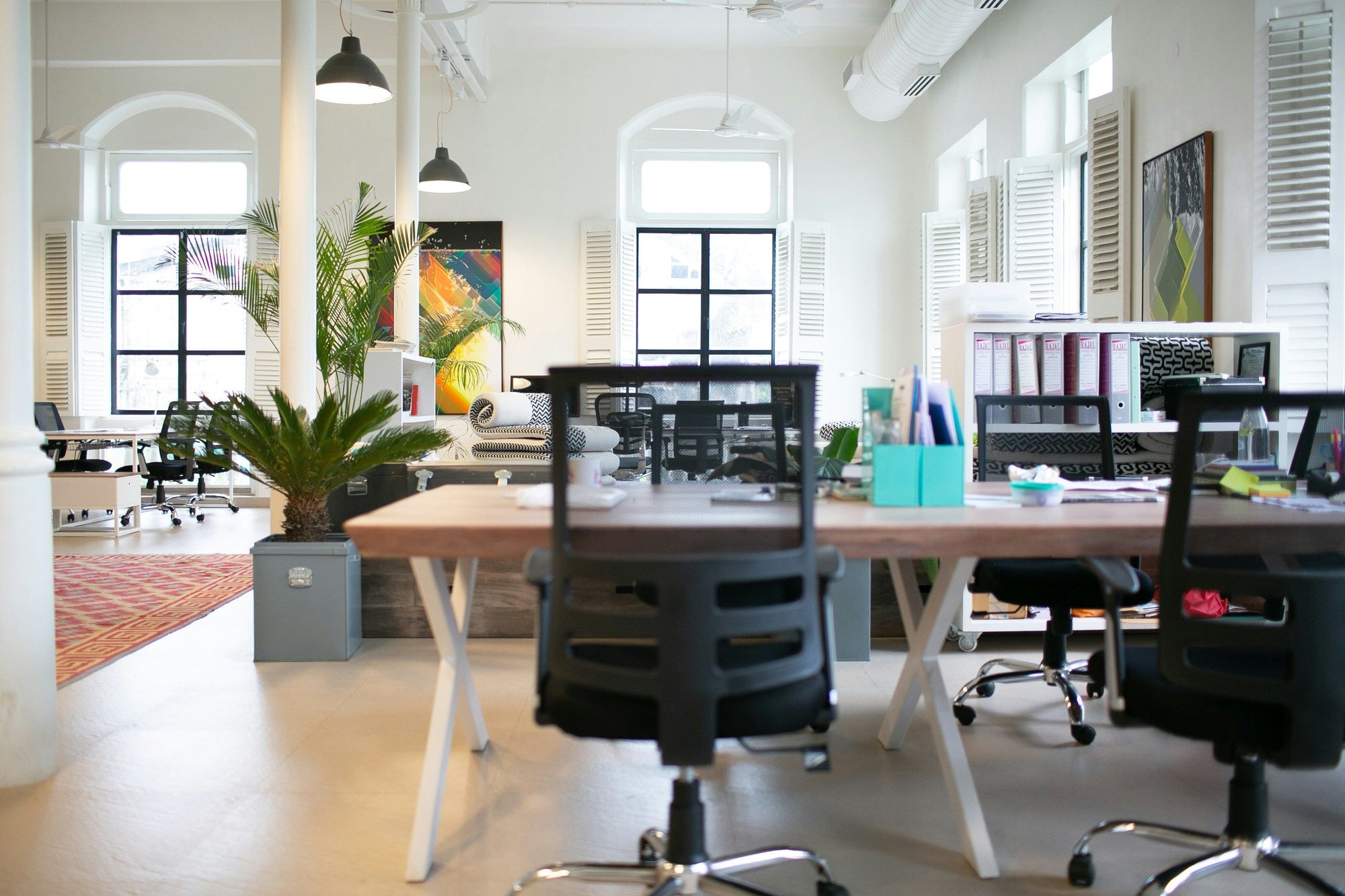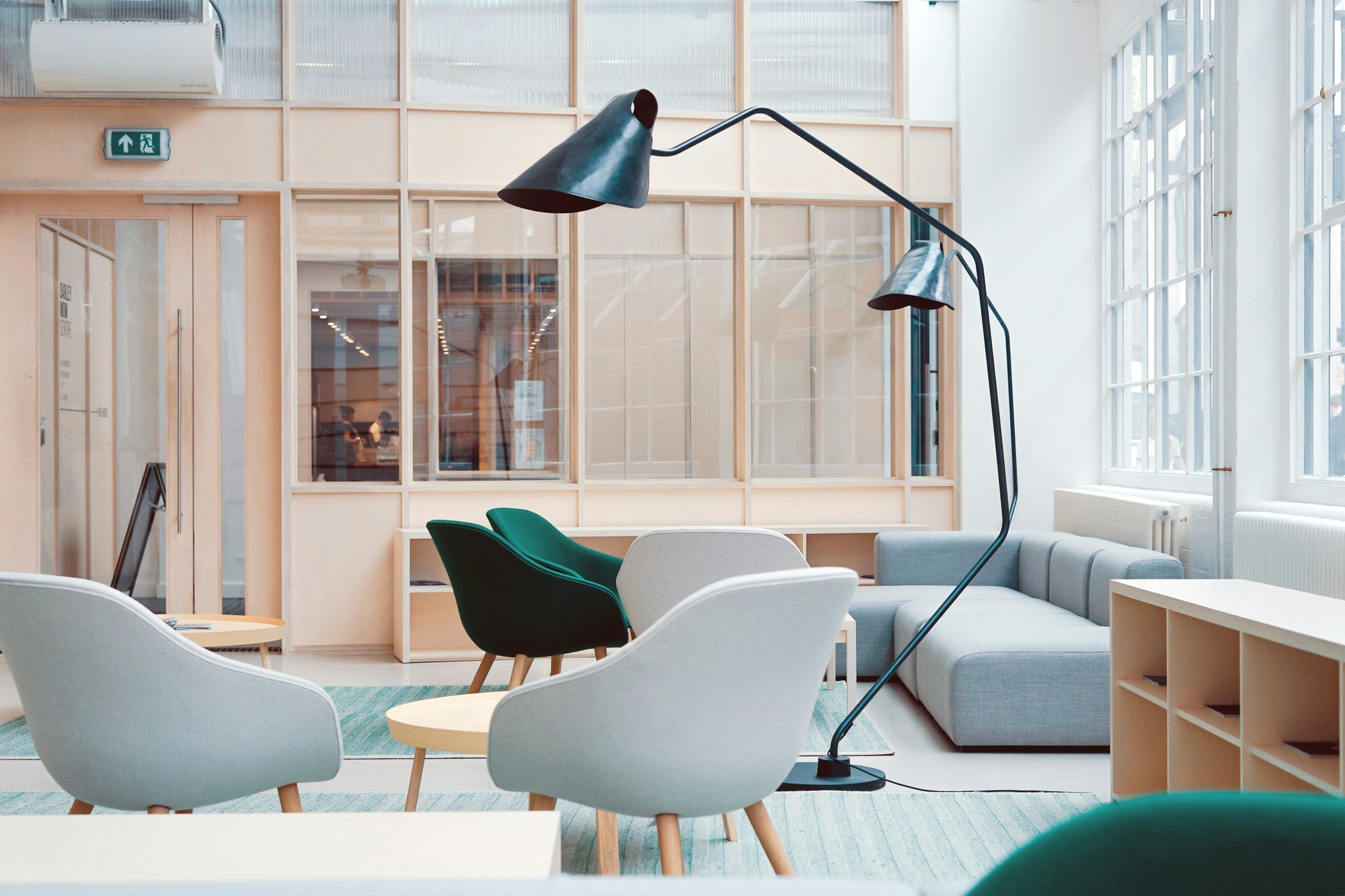As remote and hybrid work models become increasingly prevalent, the role of office furniture in supporting productivity, well-being, and connectivity has evolved. Here are key considerations for choosing the right furniture in these flexible work environments:
-
Ergonomic Support:
-
Remote workers benefit from ergonomic chairs and adjustable desks that promote proper posture and reduce strain during long hours of work.
-
Hybrid setups require versatile furniture that accommodates both office and home environments, supporting comfort and productivity in any setting.
-
-
Flexibility and Adaptability:
- Choose furniture that can be easily reconfigured to meet changing needs, whether employees are working from home, in the office, or in collaborative spaces.
- Modular desks, mobile storage units, and adaptable seating options ensure flexibility and efficiency in hybrid work setups.
-
Technology Integration:
- Office furniture should seamlessly integrate with technology tools such as monitors, laptops, and video conferencing equipment.
- Cable management solutions and built-in power outlets help maintain a tidy workspace and facilitate connectivity in both remote and hybrid environments.
-
Creating Productive Spaces:
- Designate ergonomic home office setups with comfortable seating, adequate lighting, and storage solutions that enhance concentration and productivity.
- In the office, collaborative furniture arrangements and meeting spaces foster teamwork and creativity, promoting engagement among hybrid teams.
-
Supporting Well-being:
- Prioritize furniture that supports employee well-being, such as standing desks for movement throughout the day and comfortable seating options for extended periods of sitting.
- Consider biophilic design elements and ergonomic accessories that contribute to a healthy and enjoyable workspace experience.
-
Maintaining Corporate Culture:
- Use office furniture to reinforce corporate culture and brand identity, whether through color schemes, branding elements, or collaborative spaces that reflect company values.
- Hybrid work setups benefit from consistent design elements across physical and virtual environments, creating a cohesive and inclusive work culture.
Conclusion:
Choosing the right office furniture plays a crucial role in creating a conducive and productive work environment, whether employees are working remotely, in the office, or transitioning between both. By prioritizing ergonomic comfort, flexibility, and technology integration, businesses can support their teams' success and well-being in the evolving landscape of remote and hybrid work.







